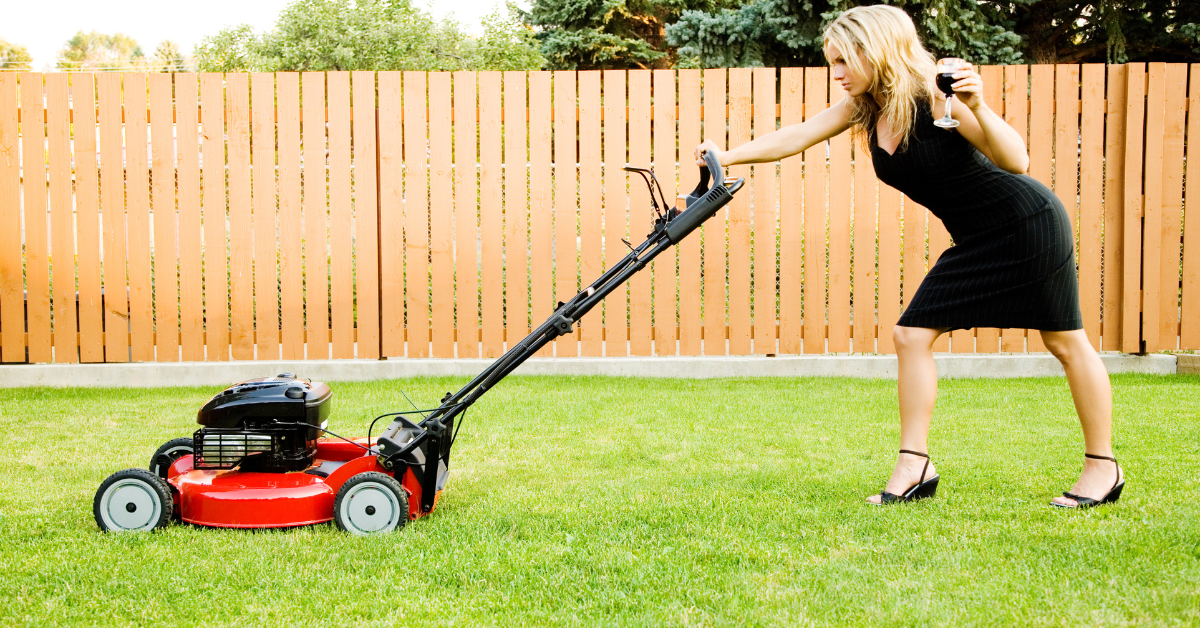Retirement. A time to finally unwind, pursue passions, and maybe even spend more quality time with loved ones. But before you picture yourself sipping margaritas on a beach somewhere, there’s a crucial decision to make: where to live after retirement. This choice can feel overwhelming, like picking the perfect puzzle piece to fit your golden years. Worry not! Let’s unpack the key considerations to help you find your perfect “forever nest.”
The Great Forever Home Debate: Moving Once or Making Memories Twice?
The first question to ponder: forever home or temporary haven? There’s no right or wrong answer, but each option has its charm.
Forever Home: The allure of settling down in one place, putting down roots, and creating a space brimming with memories is undeniable. This stability can be especially comforting as you age. However, life throws curveballs, and your needs might change over time. A sprawling house perfect for hosting grandkids might feel like a chore to maintain later in life.
Temporary Haven: Choosing a smaller, more manageable residence with the intention of potentially downsizing later can be a wise move. This allows for flexibility and avoids the potential stress of a major move when your physical capabilities change. However, the emotional attachment and sense of permanence that comes with a forever home might be missing.
My Experience: When deciding where to live after retirement we opted for the forever home route when we first retired. Some of our kids were still young (think college and just out of high school), and we envisioned years of epic family gatherings and holidays filled with laughter. We bought a spacious house with plenty of bedrooms to accommodate everyone.
Fast forward a decade, and the picture has changed. The local children and grandchildren have their own homes and many of the other kids are scattered across the country, building their own lives. The once-bustling house feels a bit cavernous. Mowing the expansive yard and cleaning all those rooms takes a toll on our freedom. In hindsight, perhaps a smaller, more manageable home or even a condo would have been a smarter choice. We could have rented larger spaces for our gatherings. Hindsight is 20/20!
Begin Here - Budgeting for Your Dream Retirement
 Finances are the foundation of your perfect retirement location. Before you get too far into planning where to live after retirement, it’s a good idea to determine what will be realistic for the short and long term. Be as realistic and careful as possible – even with meticulous planning hiccups can happen! Here’s a roadmap to navigate this crucial aspect of where to live after retirement:
Finances are the foundation of your perfect retirement location. Before you get too far into planning where to live after retirement, it’s a good idea to determine what will be realistic for the short and long term. Be as realistic and careful as possible – even with meticulous planning hiccups can happen! Here’s a roadmap to navigate this crucial aspect of where to live after retirement:
Step 1: Estimate Your Retirement Income:
- Social Security: Visit the Social Security Administration website (https://www.ssa.gov/myaccount/ ) to estimate your monthly benefits based on your work history. Remember, some states tax Social Security, so factor that into your calculations (see the list below).
- Pensions: If you have a pension from a former employer, include the estimated monthly payout in your income stream.
- Investments: Consider the expected monthly income from your investment portfolio (dividends, interest, etc.). Be realistic and factor in potential fluctuations in the market.
- Other Assets: Second homes, RVs, cars, boats, and other pricey items can prove to be a hindrance or a help. Making payments or paying taxes on these items can affect your cash-flow. However, the ability to sell off an asset if you’re ever cash-strapped gives peace of mind.
- Future Full or Part-time Work: Will you continue working at all in retirement? Include this potential income source in your budget, but consider the ramifications if you become unable to work or prefer not to.
Step 2: Factor in Living Expenses:

- Housing Costs: Estimate your monthly housing cost, whether it’s rent, mortgage payment, maintenance fees, property taxes, and homeowners insurance (as applicable).
- Utilities: Include average monthly costs for electricity, water, gas, trash collection, internet, etc.
- Food: Be realistic about your grocery needs and dining out habits. You may find yourself either eating out more or cooking more when you have additional time on your hands!
- Transportation: Factor in car payments, gas, insurance, or public transportation costs.
- Healthcare: Healthcare costs can be significant, especially as you age. Set aside a dedicated portion of your budget for health insurance, potential medical expenses, medications, and long-term care insurance (optional but advisable if you do not have someone who will care for you if necessary).
- Other Expenses: Don’t forget to include miscellaneous costs like clothing, entertainment, travel, hobbies, and pet care.
Step 3: Consider Additional Expenses in the Distant Future:
- Inflation: Inflation, the gradual rise in prices, is a reality. Plan for a slightly higher cost of living each year to maintain your desired lifestyle.
- Healthcare Needs: Healthcare costs often increase as we age. Be prepared for potential out-of-pocket expenses or consider long-term care insurance.
- States Taxing Social Security: Be aware of the tax rates for your Social Security payments in the following states. Colorado, Connecticut, Delaware, Kansas, Massachusetts, Minnesota, Montana, Nebraska, New Mexico, North Dakota, Rhode Island, South Dakota, Utah, Vermont, West Virginia, and Wyoming.
Pro-Tip: When deciding where to live after retirement, consult a financial advisor specializing in retirement planning. They can help you create a personalized budget, assess your risk tolerance for investments, and ensure your nest egg lasts through your golden years. See our Retirement Planner article for more in-depth help with this!
 Rent vs. Own: The Great Retirement Housing Debate
Rent vs. Own: The Great Retirement Housing Debate
Choosing between renting and owning a home in retirement is a personal decision. Let’s explore the pros and cons of each option:
Owning a Home
Pros:
- Stability: Owning your home provides a sense of stability and long-term security.
- Potential Appreciation: Over time, your home value may increase, providing a financial gain.
- Customization: You can personalize your living space to your taste.
Cons:
- Upkeep & Maintenance: Owning a home comes with ongoing maintenance costs for repairs, replacements, and yard work. This can become burdensome as you age.
- Property Taxes: Property taxes can be a significant monthly expense.
- Limited Flexibility: Selling a home can take time, limiting your mobility if you need to relocate for family or health reasons.
Renting
Pros:
- Flexibility: Renting offers flexibility to downsize or move to a different location if needed.
- Lower Maintenance: Landlords are typically responsible for major repairs and maintenance, freeing you from those burdens.
- Predictable Costs: Rent payments are usually fixed for a set period, offering predictable monthly budgeting.
Cons:
- No Equity Gain: You don’t build equity by renting, unlike owning a home where you gain ownership over time.
- Potential Rent Increases: Landlords can raise rent prices, impacting your budget.
- Less Control Over Your Space: You may have limitations on renovations or customizations in a rental property.
The Bottom Line:
The best choice for you depends on your individual circumstances, financial situation, and desired lifestyle.
- Consider Owning: If you value stability, long-term security, and potential appreciation, owning a home might be a good fit. However, be prepared for the responsibilities and costs of homeownership.
- Consider Renting: If you prioritize flexibility, lower maintenance burdens, and predictable monthly costs, renting could be the better option. Remember, there’s also a middle ground – renting a home or condo in a community that offers some ownership benefits. These communities often handle exterior maintenance and provide amenities like landscaping, trash removal, and sometimes even on-site maintenance personnel to address minor repairs within your unit.
Additional Considerations:
- Age and Physical Capabilities: As you age, your physical capabilities might change. Owning a large house with stairs and a yard might become a burden. Consider a single-story home or a condo with more manageable living space.
- Desired Lifestyle: Do you crave an active community with social events and amenities, or a quiet, low-maintenance retreat? This will influence whether a condo in a community or a more secluded home might be a better fit.
Making the Right Choice:
The decision between renting and owning is a crucial one. Take your time, weigh the pros and cons carefully, and consider consulting with a financial advisor to ensure your choice aligns with your long-term financial goals and retirement aspirations.
Pro-Tip: If you are having trouble envisioning your future and are not fully sure of whether to own or rent, then renting makes the best sense. By renting you will have a lot more flexibility if you’d like to change locations or wish to downsize.
The Family Factor: Close Quarters or Coast to Coast?

Family plays a significant role in retirement happiness and must be considered when deciding where to live after retirement. Here’s a closer look at the pros and cons of living near or far from loved ones:
Benefits of Staying Close:
- Invaluable Support System: Having family nearby can offer a tremendous support system, especially as you age. They can help with errands, grocery shopping, and even be there for emergencies. This peace of mind can be invaluable as your physical capabilities might change over time.
- Shared Experiences: Living near family allows for more frequent get-togethers, spontaneous visits, and building cherished memories with grandchildren (if you have them).
Drawbacks of Proximity:
- Respecting Boundaries: It’s important to remember that your children have their own lives, jobs, and families. Don’t expect them to be your full-time caretakers. Maintaining healthy boundaries and respecting their time is crucial.
- The Guilt Trap: Living close can sometimes lead to a feeling of obligation on both sides. You might feel guilty asking for help, and they may feel pressured to be constantly available. Open communication and setting clear expectations can help navigate this potential issue.
The Distance Dilemma:
As I learned firsthand from my in-laws, living far from family can be isolating, especially for unexpected situations. They moved to Florida after retirement, lured by the sunshine and proximity to Disney World. Unfortunately, the allure of theme parks wasn’t enough to entice frequent visits from their far-flung children, all busy with careers and young families. As their health declined, relying on distant neighbors and occasional flights from their kids became a logistical nightmare. While Disney World offered excitement, it wasn’t a substitute for the everyday support system they desperately needed later in life.
The Snowbird Solution: Having Your Cake and Eating It Too?
If you crave sunshine and warmth, for example, but your children are settled in a colder climate, consider becoming a “snowbird” in your early retirement years. This allows you to enjoy the best of both worlds: spending winters in a warm, sunny location and summers closer to family. As you age and travel becomes more challenging, you can transition to living permanently near your children for the support system they can provide. This doesn’t only apply to snowbirding in warm climates – it applies to whatever your cup of tea might be!
Finding Your Perfect Balance:
Choosing the right place to live after retirement is a deeply personal decision. There’s no one-size-fits-all answer, and the ideal location will vary depending on your individual needs, preferences, and budget. However, it really does create a lot of upset, expense and stress to have to change your location or home, especially as you become older. So, to the best of your ability, consider your long-term goals, desired lifestyle, and potential future needs as you make this important choice.

Maintaining Your Castle: Can You Handle the Upkeep?
As we age, our physical capabilities may change. Consider these factors when choosing your “forever nest” to ensure manageable living for years to come:
Condo vs. House: A Tale of Two Maintenance Levels
- Condos: The allure of a condo lies in its low-maintenance lifestyle. A homeowner’s association (HOA) typically handles exterior maintenance, including roof repair, painting, yard work, and snow removal (in colder climates). This frees you from the burden of mowing lawns, shoveling snow, or climbing ladders to fix leaky gutters. Perfect for those who envision a future where bending, lifting, and climbing become less appealing.
However, condo living does come with some maintenance considerations:
Shared Responsibility: While the HOA takes care of exterior maintenance, you’ll still be responsible for maintaining the interior of your condo, including appliances, plumbing, and electrical systems. While major repairs might be covered by the HOA, you’ll likely shoulder the cost of fixing leaky faucets or replacing a broken dishwasher.
Limited Control: HOAs often have restrictions on renovations and modifications you can make to your condo. This might limit your ability to customize the space to your needs as you age. For example, installing grab bars in the bathroom might require HOA approval.
Pet Restrictions: Some condo communities have restrictions on pets, especially pets exceeding a certain size or breed. Consider your furry companions when making your choice.
Houses: Owning a house offers more freedom and control over your living space. You can renovate as needed, install accessibility features like grab bars and ramps, and choose to have a pet-friendly haven.
But remember, the buck stops with you when it comes to maintenance of a house: 
- Ongoing Upkeep: Owning a house comes with the responsibility of handling all maintenance, from roof repairs and plumbing issues to yard work and seasonal upkeep. This can be time-consuming and physically demanding.
- Aging and Upkeep Challenges: As you age, climbing ladders to clean gutters or shoveling snow might become difficult or even dangerous. Mowing a large lawn could also become a chore. Consider a single-story ranch-style home with a smaller yard to minimize maintenance needs in your golden years.
My Experience: Our spacious two-story house with a sprawling lawn has been perfect for family gatherings throughout our early retirement years. However, now that we’re navigating the beginning of some age-related mobility issues, the stairs to the second floor and the constant yard work feel ominous at times. I’m truly nervous when I think about trying to maintain everything for the next 20-30 years (God willing).
In hindsight, a single-story condo in a walkable community with HOA-managed maintenance would have been a much more practical choice for our long-term needs. We knew this when we purchased our home, but we anticipated being able to hire people to help maintain our home. However, with rising costs and inflation, we are getting very nervous about being able to afford to hire landscapers and so on. This is why I suggest being very realistic when reviewing your finances before making decisions.
The Bottom Line:
Consider your future physical capabilities when choosing between a condo and a house. A condo offers a low-maintenance lifestyle, but with less control over modifications. A house provides more freedom but comes with the burden of ongoing upkeep and expense. Think about your long-term vision and choose the option that best suits YOU and your future needs.
Considering Touristy Attractions When Deciding Where to Live After Retirement is a Balancing Act

I need to talk about the fact that there are some situations where retirees move far away from their children and assume they will come to visit as long as there are some fun amenities or attractions where they live. And sure, a charming town with cobblestone streets, quirky shops, historical sites, or exciting natural attractions like a national park might be more enticing for your family to visit than a secluded rural area. But here’s the thing: appeal is just one piece of the puzzle.
The Allure of Tourist Draws:
Imagine your grandkids’ eyes lighting up at the prospect of visiting the amusement park or science museum down the street from your new retirement haven. Or perhaps your children crave a weekend getaway to catch a concert at the nearby arena featuring their favorite band. Living in a location with exciting tourist attractions can definitely be a draw for family visits.
However, consider these realities:
- Distance Matters: Even the most enticing theme park won’t be a frequent destination if your family lives across the country and struggles with travel costs or limited vacation days.
- Financial Feasibility: Let’s be honest, family vacations can be expensive, especially for families with young children. If your children are juggling mortgages, childcare, and student loans, a weekend trip to see you in “tourist paradise” might not be at the top of their budget.
- Time Constraints: Busy schedules and limited vacation days can make it difficult for families to visit, regardless of location. Don’t underestimate the power of quality time spent closer to home, even if it’s not in a hotspot brimming with tourist attractions.
The High-Maintenance Conundrum of Pools and Hot Tubs:
A sparkling pool or a soothing hot tub can add a touch of luxury and relaxation to your retirement haven. Imagine grandkids splashing around on a hot summer day or enjoying a soak in the hot tub under the stars with your significant other. Sounds idyllic, right? Well, hold on a minute.
- Maintenance Woes: Pools and hot tubs require regular maintenance, including cleaning, chemical balancing, and potential repairs. As you age, this upkeep might become burdensome. Consider the long-term practicality before you get swept away by the vision of poolside bliss.
The True Essence of Family Connection:
At the end of the day, the most important factor in encouraging family visits is the quality of your relationships. Sure, a charming town with exciting attractions might add a fun element, but it won’t replace the genuine connection you have with your loved ones.
Here are some tips to nurture strong family bonds, regardless of location:
- Regular Communication: Schedule regular phone calls, video chats, or even write old-fashioned letters.
- Plan Meaningful Visits: Focus on quality time spent together, creating lasting memories. This could involve cooking a family favorite meal, playing games, or exploring local attractions together (even if they’re not world-famous).
- Embrace Technology: Video conferencing platforms like Zoom or FaceTime can bridge the physical distance and allow for frequent virtual visits.
Remember:
Family visits are precious moments to cherish. While location can play a role, the true foundation lies in a strong emotional connection. Choose a place you love, nurture your relationships, and embrace the joy of spending time with your loved ones, no matter how near or far they reside.
Before you commit yourself to living far from beloved family or friends, be certain that you aren’t about to deal a fatal wound to a relationship you depend upon for your happiness. I have been witness to this with a number of aging friends and family, and it is truly heartbreaking.
Location, Location, Location: Finding Your Vibe Beyond Family
Beyond family considerations, location offers a wealth of factors to ponder:
- Climate: Do you crave sunshine and warm temperatures year-round, or do you enjoy the changing seasons with crisp winters?
- Activities: Are you drawn to a vibrant town with cultural offerings, outdoor activities, and a variety of restaurants, or a quiet rural retreat with a slower pace of life?
- Healthcare: Proximity to good healthcare facilities, including hospitals, specialists, and urgent care centers, is crucial, especially as you age.
- Job Opportunities: Maybe you want to pursue a part-time job or volunteer in retirement. Consider areas with industries that align with your skills and interests.
Pro-Tip: Look for towns with a good mix of retirees and younger families. This creates a dynamic community with something for everyone, from social activities and clubs for retirees to parks and playgrounds for families.
The Allure of Walkability, Public Transportation, and Avoiding the Boonies:
Choosing a location with walkability or easy access to public transportation can significantly enhance your quality of life, especially as you age. Imagine being able to walk to the grocery store, library, or doctor’s appointments without relying on a car. Conversely, living in a remote area with limited access to amenities and no public transportation options can lead to isolation and inconvenience.
Making Your Money Work for You – Considering Taxes:
Remember, some states tax Social Security benefits. This can make a significant difference in your retirement budget. We mentioned the list earlier, but it’s worth revisiting:
States Taxing Social Security: Colorado, Connecticut, Delaware, Kansas, Massachusetts, Minnesota, Montana, Nebraska, New Mexico, North Dakota, Rhode Island, South Dakota, Utah, Vermont, West Virginia, and Wyoming.

Takeaways
Choosing Between a Forever Home or Temporary Haven:
- Forever Home: Provides stability and a sense of permanence, but might be difficult to maintain later in life.
- Temporary Haven: Offers flexibility and allows for downsizing as needed, but might lack the emotional attachment of a forever home.
Budgeting for Retirement:
- Factor in Social Security taxes, potential healthcare costs, and inflation when planning your budget.
- Consider renting vs. owning based on your financial situation and desired lifestyle.
Family Considerations:
- Benefits of Staying Close: Invaluable support system, shared experiences with family and grandchildren.
- Drawbacks of Proximity: Respecting boundaries, potential guilt trips on both sides.
- Snowbird Option: Enjoy warm winters in a sunny location, spend summers near family, transition to permanent residence near family later in life.
Maintaining Your Castle:
- Condo vs. House: Condos offer low maintenance but might have restrictions. Houses require more upkeep but offer more freedom.
- Walkability vs. Transportation: Walkable neighborhoods and good public transportation options can be a lifesaver as you age.
Finding Your Ideal Location:
- Consider climate, activities, healthcare access, and potential job opportunities.
- Look for a vibrant community with a mix of retirees and younger families.
- Prioritize walkability, public transportation, or proximity to amenities to avoid isolation.
- Choose a location with features that might entice family visits (tourist attractions, etc.).
- Be mindful of states that tax Social Security benefits.
Remember:
There’s no single “right” answer when it comes to choosing where to live after retirement. The most important thing is to consider your individual needs, preferences, and budget to find the place that will bring you the most happiness and fulfillment in your golden years. Don’t be afraid to adjust your vision as your circumstances evolve.
Happy hunting!


 Rent vs. Own: The Great Retirement Housing Debate
Rent vs. Own: The Great Retirement Housing Debate











